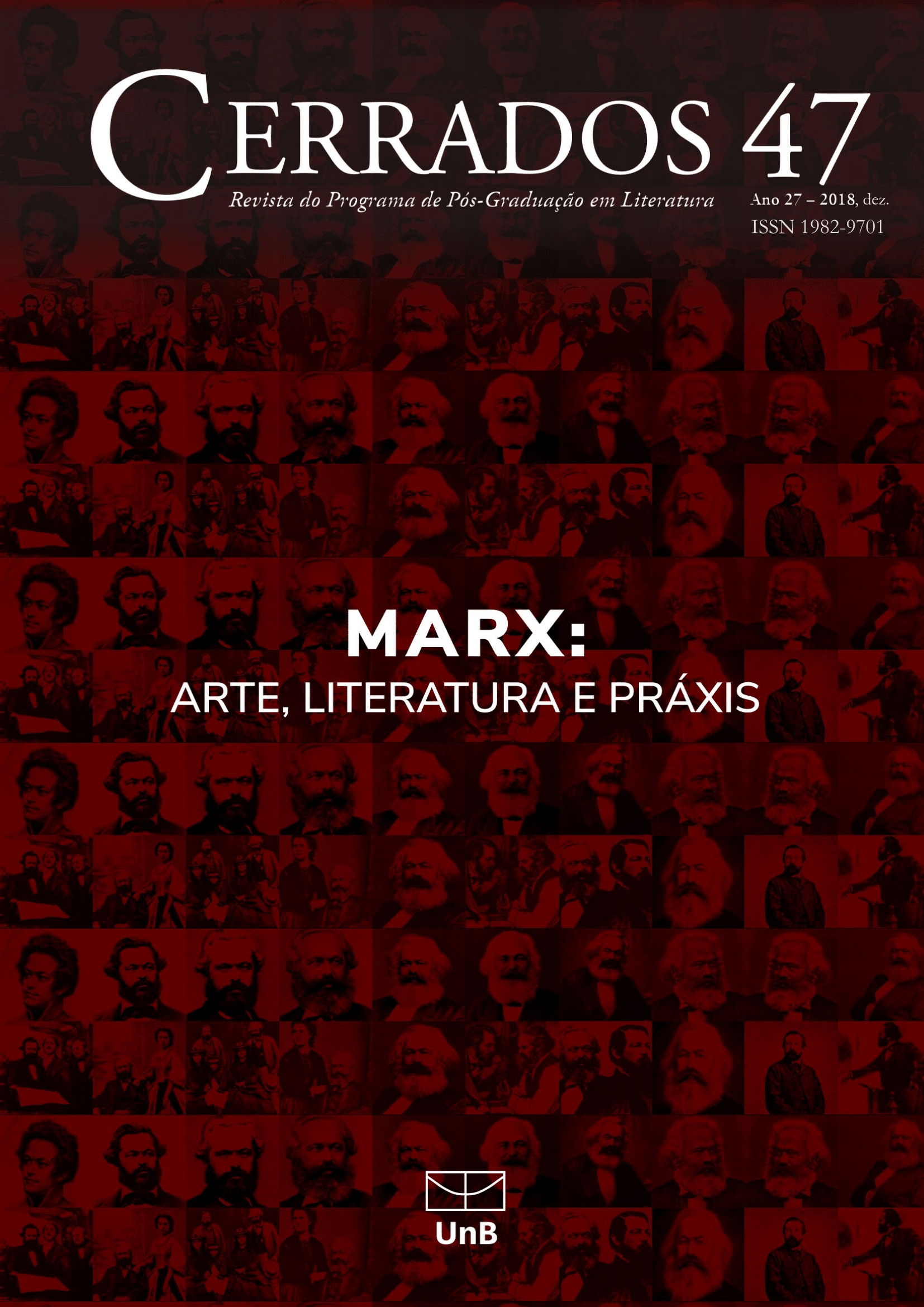Reading and Criticism, Bb Raymond Williams:
The Construction Of The Critic And The Relevance Of William Shakespeare
DOI:
https://doi.org/10.26512/cerrados.v27i47.19678Keywords:
Williams. Reading and Criticism. literary critic. Pedagogue. ShakespeareAbstract
This article sets out to explore the construction of the literary critic in Raymond Williams’s first book Reading and Criticism and how William Shakespeare operates in it. In his work, the Welsh writer displays a paradox. On the one hand, he acknowledges the importance of social and historical conditions when training readers in the context of free and compulsory education in England. By means of this project, the critic becomes a pedagogue. On the other hand, the writer removes the object and the methodology of study as well as the figure of the critic from their social and historical frame. This paradox, made visible through the references to Shakespeare, does not mean that the pedagogue outstands the critic: the former exhibits the limits of Williams’s first proposal, which are in keeping with the lack of historicity he ascribes to literary studies.
References
DOVER WILSON, John. Introduction. In: SHAKESPEARE, William. King John. Cambridge: Cambridge University Press, 2009, p. vii-lxii.
BOURDIEU, Pierre, Campo intelectual, campo de poder. Trad. Alberto Ezcurdia. Buenos Aires: Quadrata, 2003.
GREENBLATT, Stephen. Learning to Curse: Essays in Early Modern Culture. Nueva York: Routledge, 1990.
ELIOT, Thomas S. The Function of Criticism. In: ELIOT, T. S. Selected Essays. Londres: Faber and Faber, 1932, p. 23-36.
ELIOT, Thomas S. Tradition and the Individual Talent. In: ELIOT, T. S. Selected Essays. Londres: Faber and Faber, 1932, p. 13-22.
FIELDHOUSE, Roger. Oxford and Adult Education. In: MORGAN, W. John e PRESTON, Peter (Org.). Raymond Williams. Politics, Education, Letters. Nueva York: St. Martin’s Press, 1993, p. 47-64.
JONES, Rod, NIELD, Sophie, WALLACE, Jeff. Introduction: “Somebody is trying to think…”. In: JONES, Rod, NIELD, Sophie, WALLACE, Jeff (Org.). Raymond Williams Now. Knowledge, Limits and the Future. Houndmills, Basingstoke, Hampshire y Londres: Macmillan Press Ltd, p. 1-21.
INGLIS, Fred. Raymond Williams. Londres y Nueva York: Routledge, 1998.
KEWES, Paulina. The Elizabethan History Play: A True Genre?. In DUTTON, Richard e HOWARD, Jean E. (Org.), A Companion to Shakespeare’s Works. Volume II. The Histories. Malden, Oxford, Victoria y Berlín: Blackwell Publishing, 2003, p. 170-193.
MARX, Karl. Ökonomisch-philosophische Manuskripte aus dem Jahre 1844. In: MARX, Karl. Werke. Band 40. Berlín: Dietz Verlag Berlin, 1968.
MCILROY, John. Teacher, Critic, Explorer. In: MORGAN, W. John e PRESTON, Peter (Org.). Raymond Williams. Politics, Education, Letters. Nueva York: St. Martin’s Press, 1993, p. 14-46.
WILLIAMS, Raymond. Reading and Criticism. Cambridge: Cambridge University Press, 1962.
SHAKESPEARE, William. King John. Cambridge: Cambridge University Press, 2009.
Downloads
Published
Issue
Section
License
Proibida a reprodução parcial ou integral desta obra, por qualquer meio eletrônico, mecânico, inclusive por processo xerográfico, sem permissão expressa do editor (Lei n. 9.610 de 19/2/1998 )



